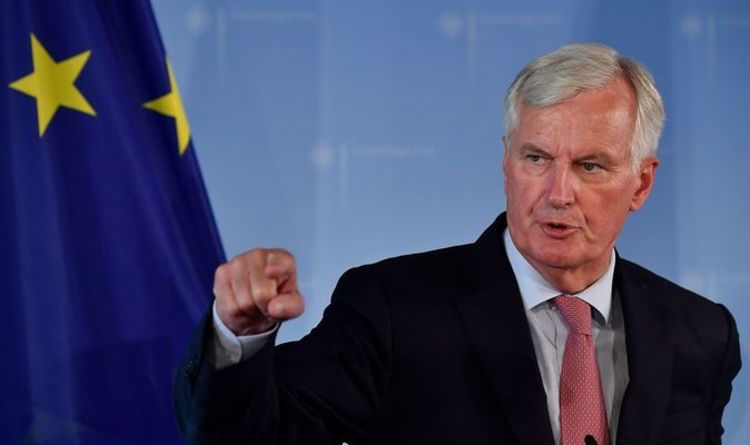Brexit: Expert expresses concern for fishing industry future
When you subscribe we will use the information you provide to send you these newsletters.Sometimes they’ll include recommendations for other related newsletters or services we offer.Our Privacy Notice explains more about how we use your data, and your rights.You can unsubscribe at any time.
Giving evidence to the Federal Parliament of Belgium’s European Affairs Committee, the former EU chief negotiator hinted Britain’s access to the European Energy Market is guaranteed on that condition.
Under Article 27 of the Brexit trade deal Energy title, it is agreed between both sides there will be no tariffs chargeable on the exportation of electricity or gas.
The agreement also makes clear neither the UK nor an EU Member State can impose a higher price for the export of raw materials and energy goods.
There is a five-and-a-half-year transition period before terms for energy access are renegotiated again under the deal.
Similar terms apply for fisheries over a five-and-a-half-year transition period where both sides agreed that 25 percent of EU boats’ fishing rights in UK waters will be transferred to the British fishing fleet by 2026.
Mr Barnier said fishing was one of the most difficult elements of the four-year negotiations “because we were asking.”
He made clear there were “several preventative measures in the agreements to deter the British from shutting off much of their waters.”
Referring to energy as one measure, the eurocrat said: “There is in the overall agreement a mirror provision – exactly the same as for fisheries – in the field of energy.
“We have introduced a transitional period of five-and-a-half-year of stabilized access by the British to our market.
“After that, every year we will discuss their access to our electricity market with them, just as they will discuss the access of our fishermen to their waters.”
The former European Union (EU) negotiator also made clear the Northern Ireland protocol included in the agreement on the withdrawal of the United Kingdom will not be renegotiated.
The protocol was designed by the EU and UK to avoid a hard border on the island of Ireland.
It achieves this by moving regulatory and customs checks to the Irish Sea, with goods imported into Northern Ireland from the rest of the UK subject to a range of new processes.
But Unionist politicians in Northern Ireland are demanding the end of the protocol, claiming it has driven an economic wedge between the region and the rest of the UK, undermining the Union as a consequence.
A virtual meeting of the UK and EU Joint Committee on the Northern Ireland Protocol took place today to discuss the matter.
In a joint statement after the virtual meeting on Wednesday, co-chairmen Cabinet Office minister Michael Gove and European Commission vice president Maros Sefcovic said both sides committed to the “proper implementation” of the protocol.
DON’T MISS:
Boris readying to ‘Corbyn-proof’ Britain after Labour’s plot [INSIGHT]
Sadiq Khan’s London statue commission dealt blow as appointee resigns [REVEAL]
PMQs LIVE: Boris faces interrogation over plans for vaccine passports [LATEST]
But Mr Barnier continued: “Regarding the Irish protocol, you have to avoid mistakes.
“It is necessary to be very responsible, to be very calm and, in due course, to technically implement this protocol, which will not be renegotiated.”
Source: Read Full Article




